Basic Addition Skills Numbers Worksheets for Ages 3-8
12 filtered results
-
From - To
Enhance your child's math skills with our Basic Addition Skills Worksheets, specially designed for kids aged 3-8. These engaging and interactive printables focus on fundamental addition concepts, helping young learners build a strong math foundation. Each worksheet features colorful illustrations and age-appropriate exercises that make learning fun and effective. Perfect for both classroom use and home learning, these worksheets encourage kids to practice addition through simple problems, visual aids, and hands-on activities. Watch your child develop confidence in their math abilities while enjoying the process. Explore our collection and support your child’s math journey today!
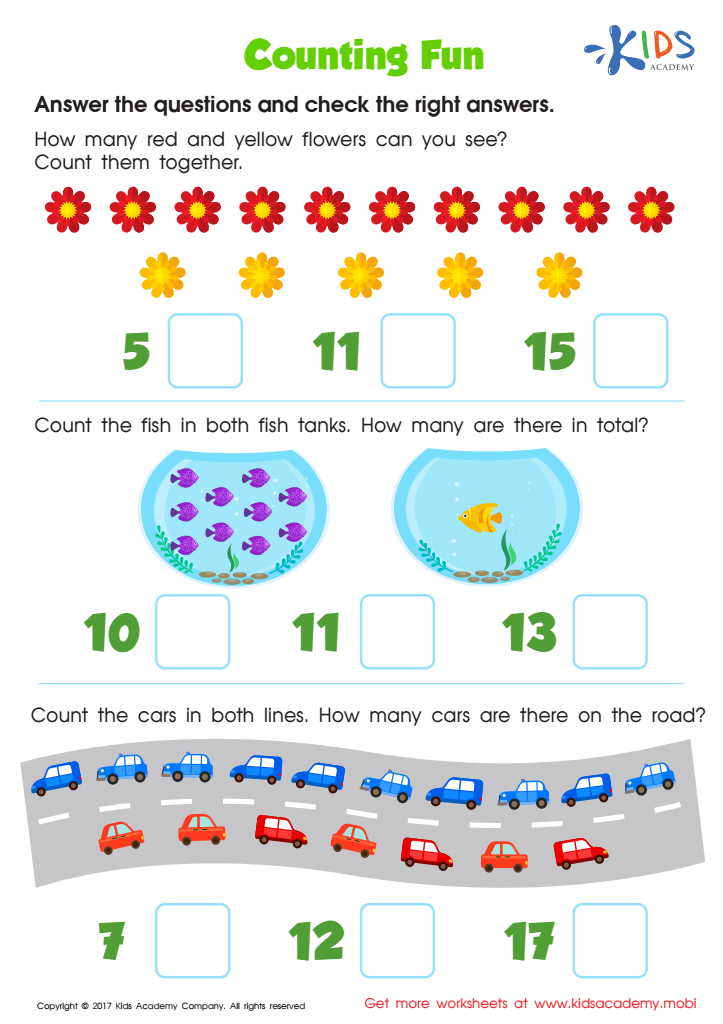

Counting Fun Worksheet
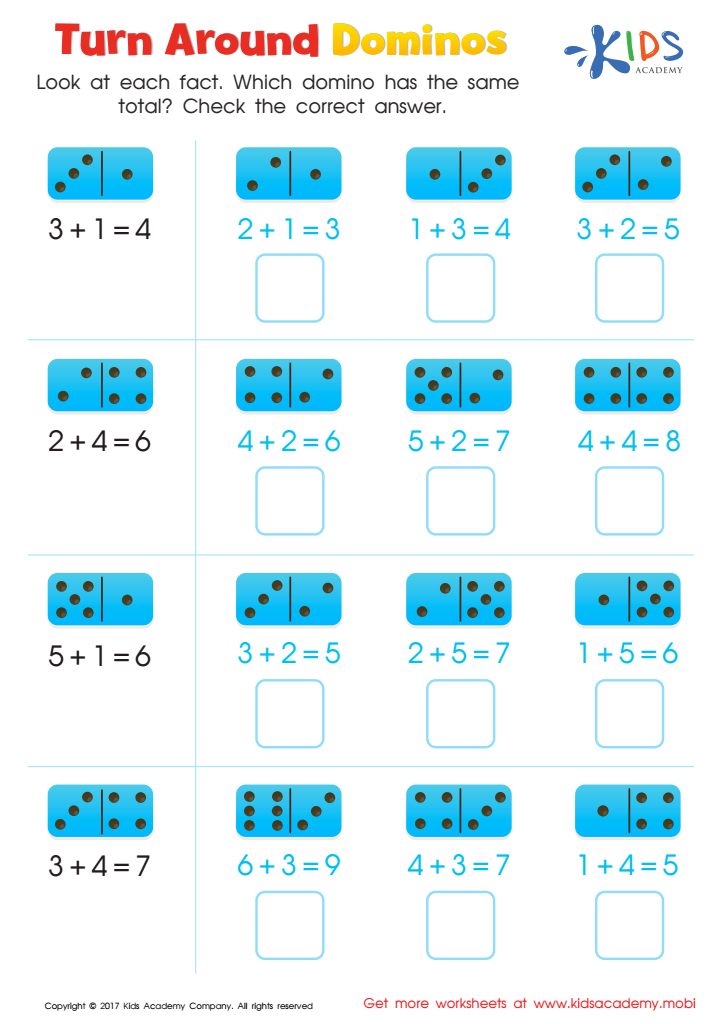

Turn Around Dominos Worksheet
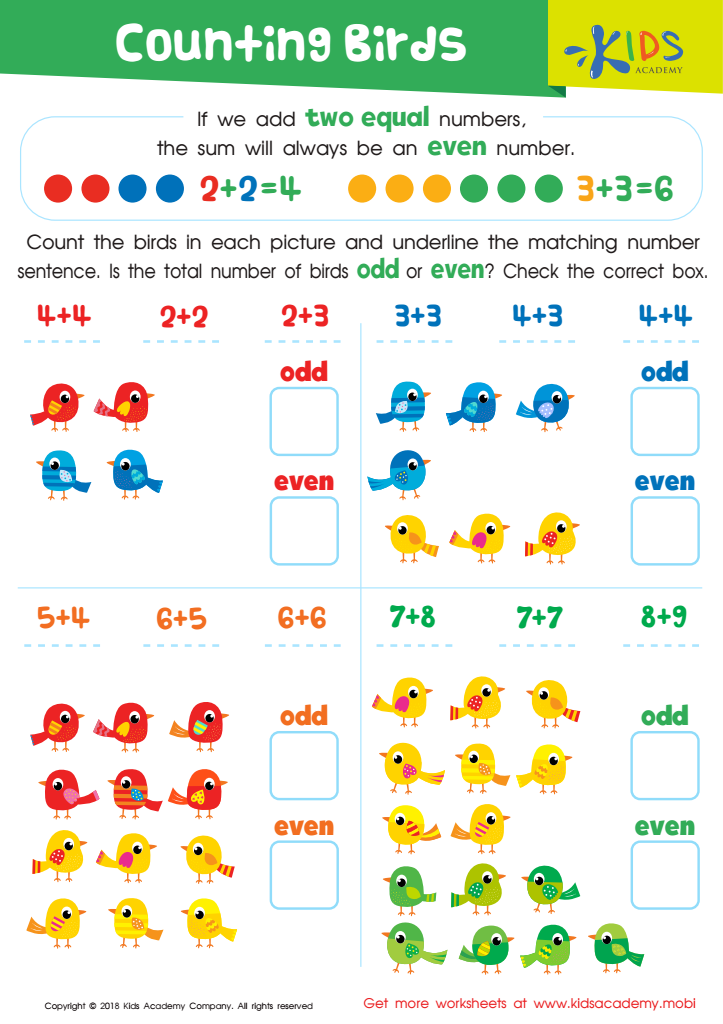

Counting Birds Worksheet
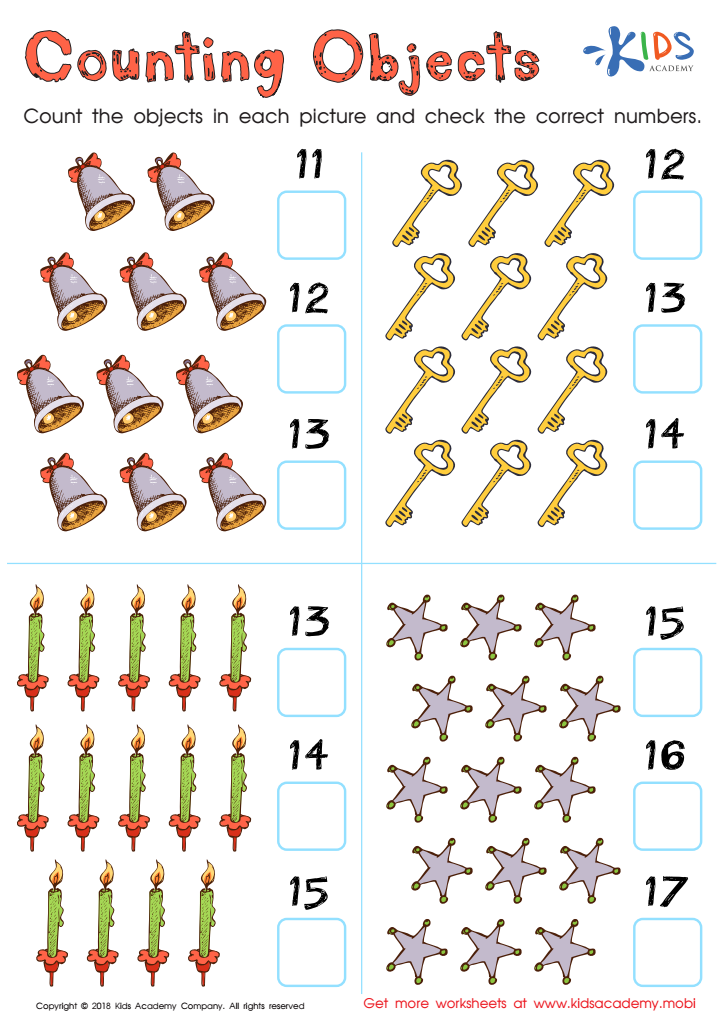

Counting Numbers Worksheet For Kindergarten
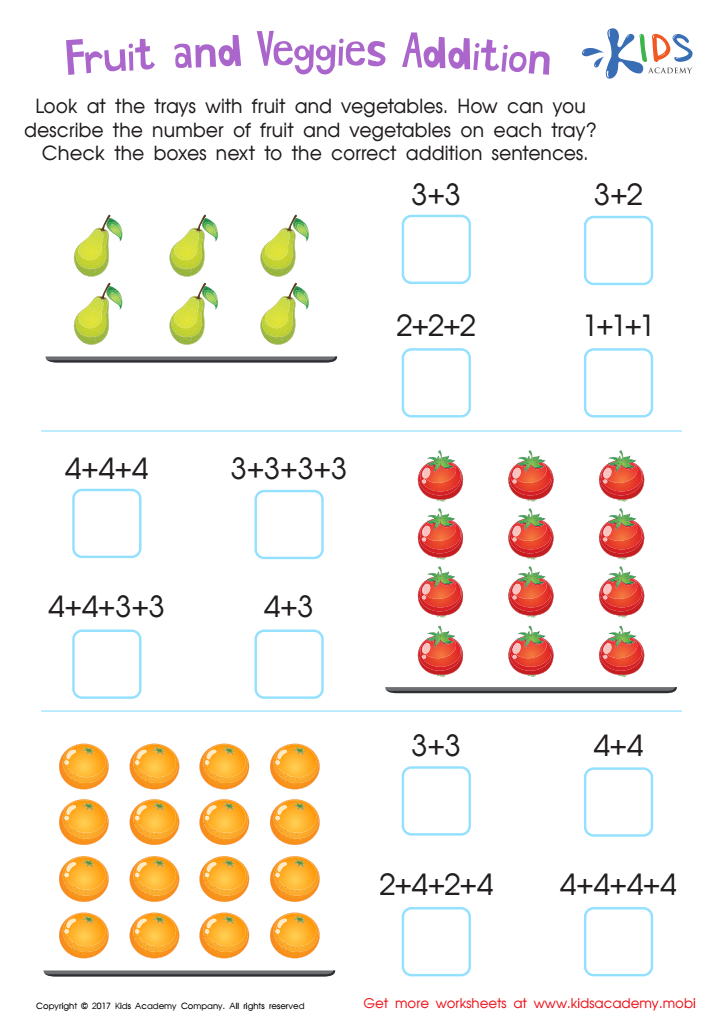

Fruit and Veggies Worksheet
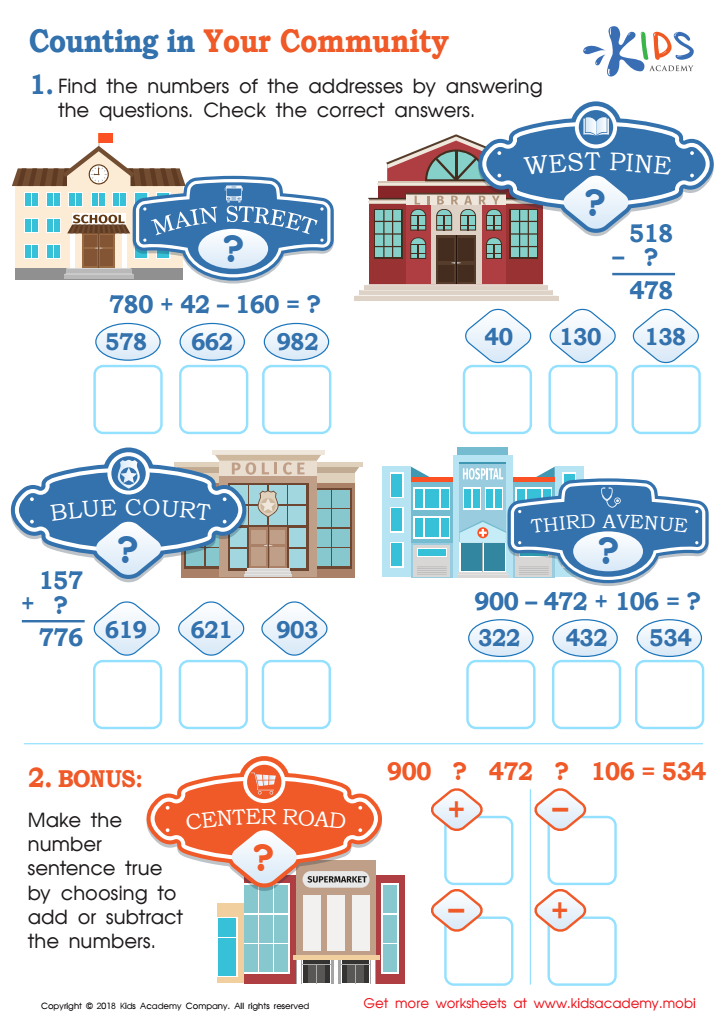

Counting in Your Community Worksheet


Party Arrays Worksheet
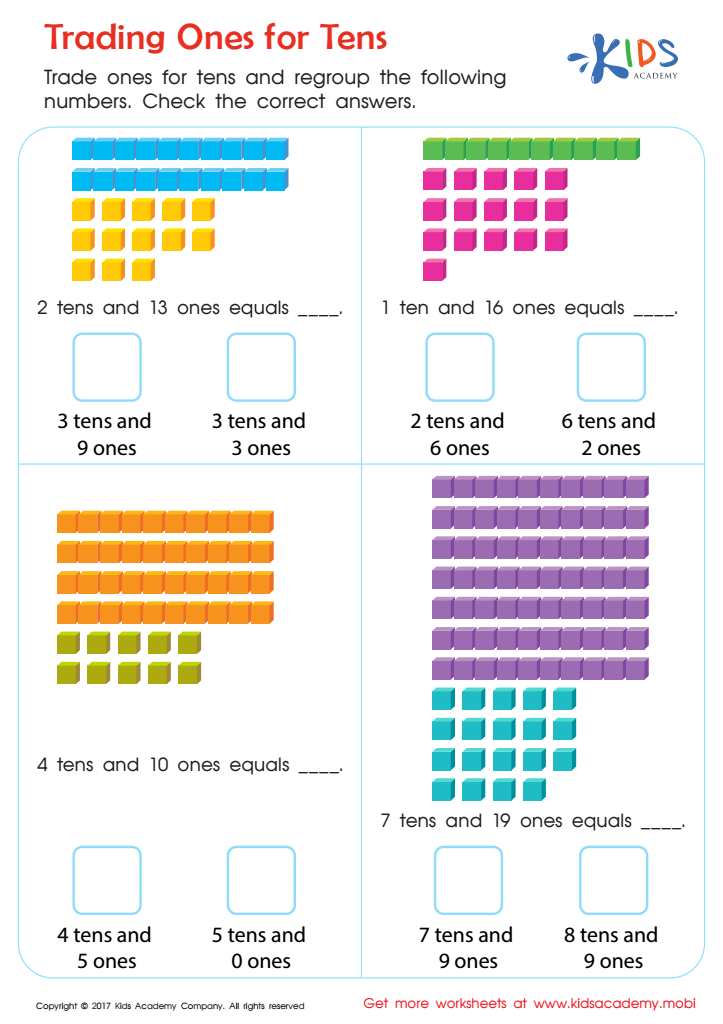

Trading Ones for Tens Worksheet
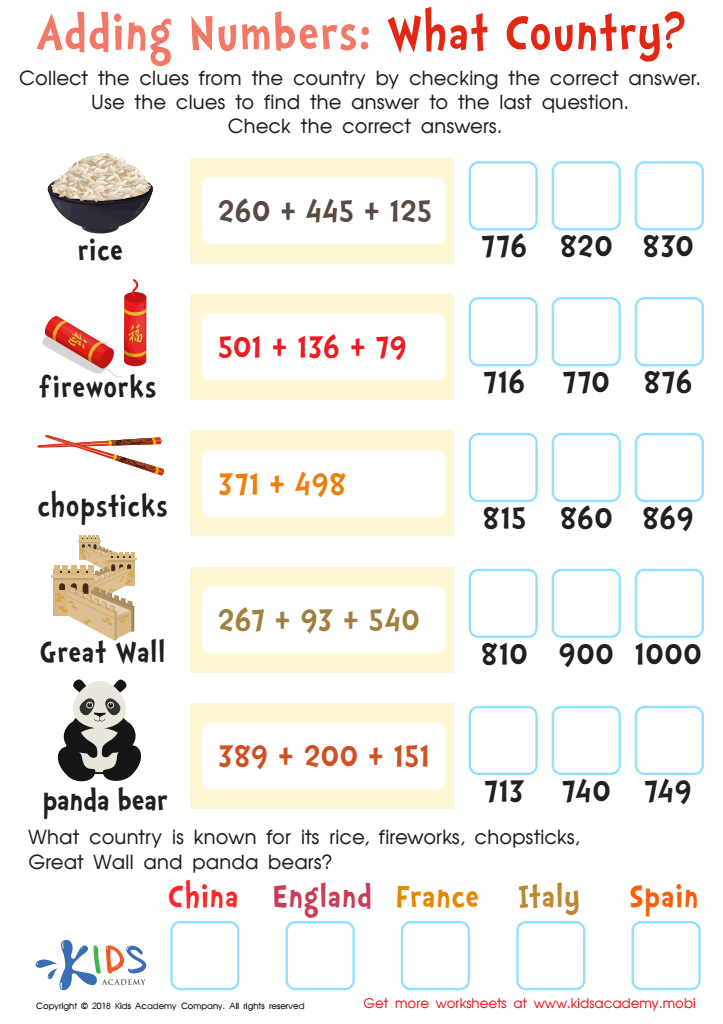

Adding Numbers: What Country Worksheet
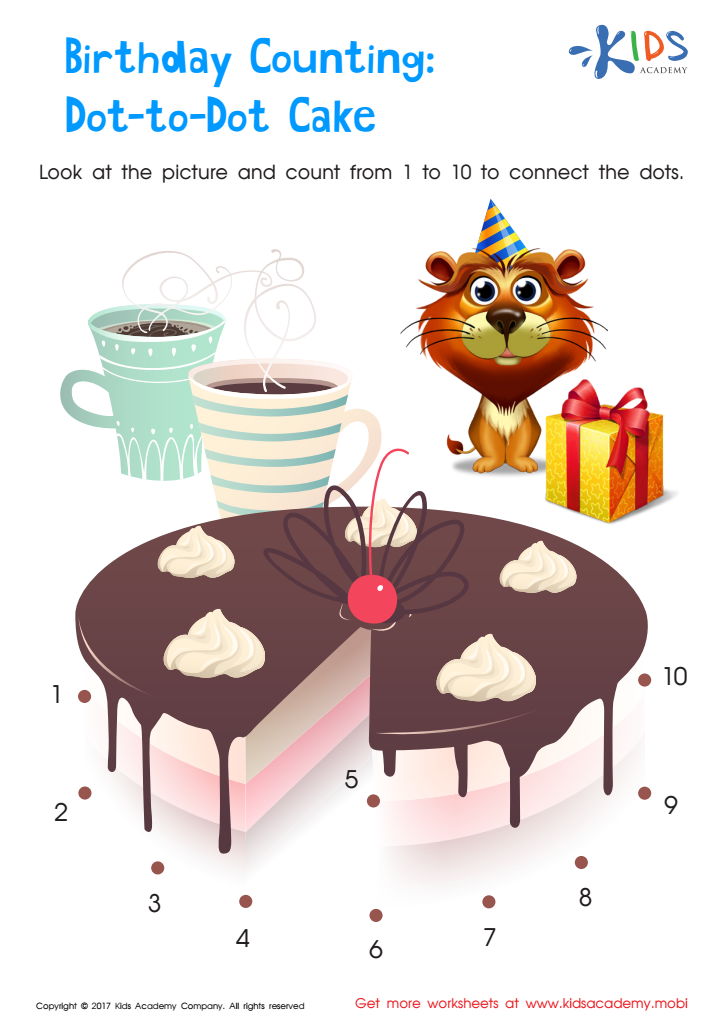

Birthday Counting Connect Dots Worksheet
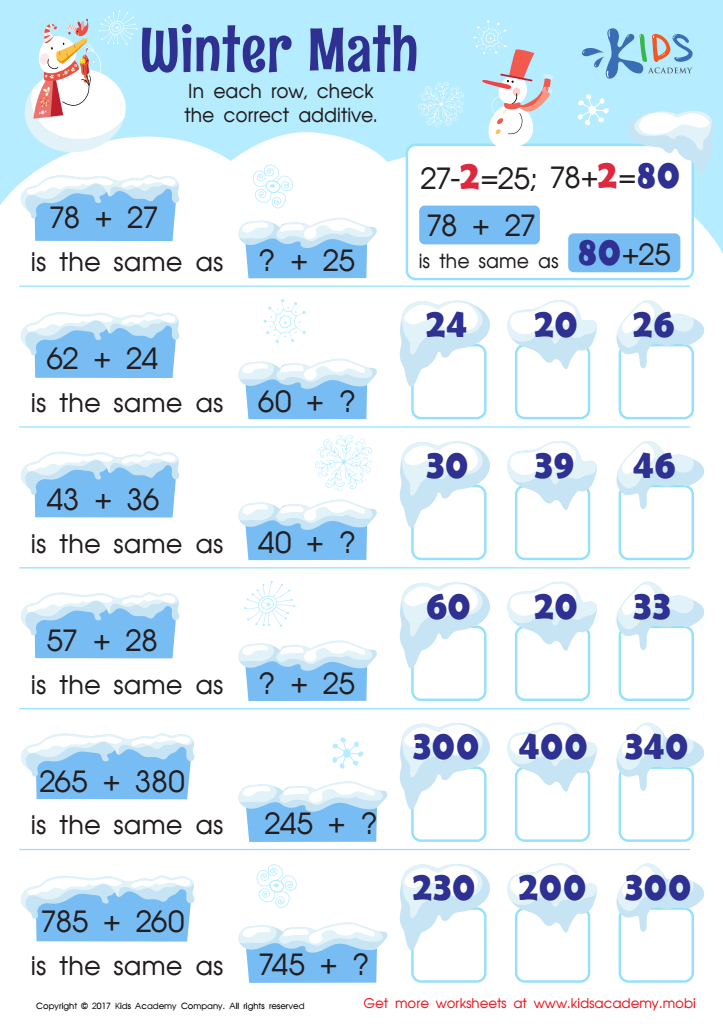

Free Addition Worksheet
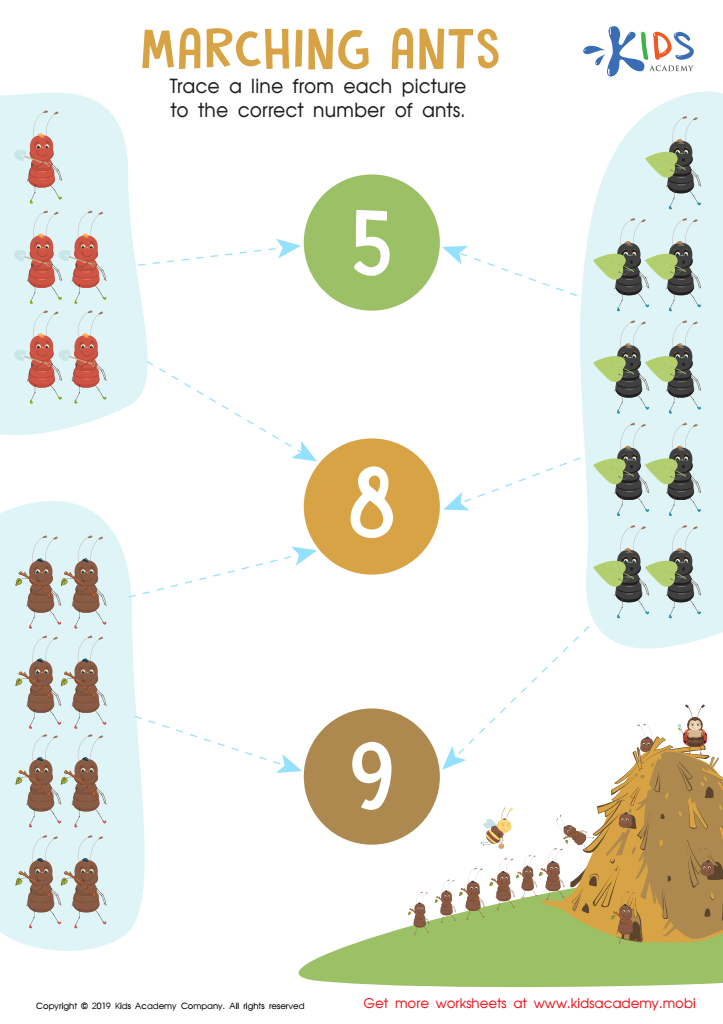

Marching Ants Worksheet
Parents and teachers should prioritize basic addition skills for children aged 3-8 because early mathematical understanding lays the foundation for future academic success. Mastering addition at this age enhances cognitive development, improving critical thinking and problem-solving abilities. Children who grasp basic addition are more likely to excel in later mathematical concepts, creating a strong mathematical mindset.
Additionally, learning basic addition encourages an appreciation for patterns and numbers in everyday life. It allows children to better understand concepts like counting, sharing, and comparing quantities. Early exposure to such ideas fosters confidence in their mathematical abilities, which is crucial when they begin more complex topics.
Moreover, addition can be taught through engaging activities, making learning enjoyable and interactive. When parents and teachers emphasize math through games, stories, and real-life scenarios, it helps reinforce skills while nurturing a positive attitude toward learning. This motivational aspect can lead to a lifelong love for mathematics.
Finally, as many modern professions require quantitative reasoning and basic math proficiency, equipping children with these fundamental skills prepares them for future challenges. Ultimately, early addition skills empower children, enhancing their communication with the world around them and promoting critical life skills essential for development.

 Assign to My Students
Assign to My Students
















